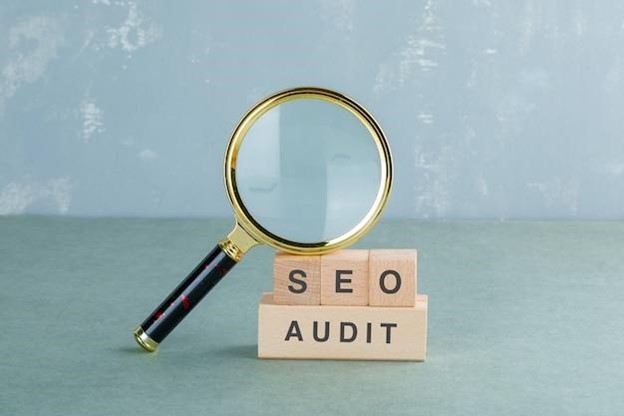Today, businesses need to prioritize search engine optimization to ensure sustained online visibility and growth. However, understanding whether your technical SEO strategy is effective can be challenging for many business owners. This is where the importance of an SEO audit becomes evident.
By undergoing an SEO audit, you gain insights into the effectiveness of your website’s optimization efforts and uncover any critical issues hindering your search engine rankings. If a DIY approach seems overwhelming, you can always partner with a reputable professional SEO services provider such as 2020 Vision Digital. SEO experts can help you streamline this process, ensuring comprehensive analysis and strategic recommendations tailored to your business goals.
Neglecting regular evaluations can lead to serious issues that affect your site’s performance, such as poor indexing, decreased user engagement, and loss of revenue. By following a structured SEO audit checklist, you can enhance your website’s visibility in search results and improve the overall user experience.
SEO Audit Checklist – Everything You Need to Know
Check Website Visibility, Crawlability, and Indexability
The foundation of SEO lies in ensuring that search engines can discover and index your website’s content efficiently. Begin your audit by assessing the visibility, crawlability, and indexability of your site. Use tools like Google Search Console to identify any crawl errors, missing pages, or indexing issues. Ensure that your robots.txt file isn’t inadvertently blocking search engines from accessing essential parts of your site.
Assess Site Speed and Performance
In today’s fast-paced digital environment, users expect websites to load quickly. Page speed not only influences user experience but also impacts search engine rankings. Utilize tools like Google PageSpeed Insights or GTmetrix to analyze your website’s loading times and identify performance bottlenecks. Optimize images, leverage browser caching, and minimize server response times to enhance overall site speed.
Review Security Protocols
Website security is paramount, both for protecting user data and maintaining search engine trust. Conduct a thorough review of your website’s security protocols, ensuring that SSL certificates are properly installed and that your site follows HTTPS encryption. Regularly update software, plugins, and themes to patch security vulnerabilities and guard against cyber threats.
Enhance User Experience
User experience (UX) plays a key role in determining the success of your website. Evaluate key UX elements such as navigation, readability, and accessibility. Ensure that your site is intuitive to navigate, with clear CTAs guiding users toward desired actions.
Optimize content for readability, employing concise, engaging language and formatting techniques such as bullet points and headings. Additionally, prioritize accessibility by adhering to WCAG guidelines, making your website usable for all individuals, including those with disabilities.
Ensure Mobile Responsiveness
With the rising usage of mobile devices for web access, prioritizing mobile responsiveness is non-negotiable. Evaluate your website’s performance across various devices and screen sizes, ensuring that content renders seamlessly and functionality remains intact. Embrace responsive design principles, employing techniques like fluid grids and flexible images to create a consistent user experience across devices.
Verify Content Quality
The quality of your website’s content directly impacts its search engine visibility. Assess the relevance, accuracy, and usefulness of your content to ensure it meets the needs of your audience. Remove any duplicate or low-quality content, and focus on providing valuable, engaging information that resonates with your visitors.
Check XML Sitemaps
XML sitemaps are essential for search engines to understand the structure of your website and index its pages efficiently. Confirm that your XML sitemap is up-to-date and accurately reflects your site’s content. Regularly submit your sitemap to search engines to facilitate smooth crawling and indexing of your website.
Optimize Metadata
Meta tags, such as meta descriptions and title tags, play a crucial role in search engine results and user engagement. Review and optimize these tags across your website to accurately represent each page’s content and target relevant keywords. Craft compelling titles and concise descriptions that encourage users to click through to your site.
Analyze Internal and External Links
Links are important signals of credibility and relevance to search engines. Evaluate your website’s internal linking structure to ensure it aids navigation and distributes link authority effectively. Additionally, review external links pointing to your site, disavowing any harmful or irrelevant links. Focus on acquiring high-quality backlinks from reputable sources to boost your site’s authority.
Invest in Professional SEO Services
Professional SEO services offer expertise and resources to improve your website’s visibility and performance. Partnering with an experienced SEO agency or consultant can provide strategic insights and tailored solutions to meet your business objectives.
Frequently Asked Questions (FAQs)
Why is an SEO audit important?
An SEO audit ensures your website is optimized for search engines, improving visibility and user experience.
How often should I conduct an SEO audit?
It’s recommended to perform an SEO audit every six months. However, in competitive industries or after significant changes, it’s advisable to conduct audits more frequently.
Can I do an SEO audit myself?
While you can perform a basic SEO audit yourself using online tools and resources, hiring professional SEO services offers expertise and comprehensive analysis.
What issues does an SEO audit reveal?
Common issues include crawl errors, slow speed, security vulnerabilities, poor linking, and low-quality content.
What ongoing SEO activities are important?
Monitoring performance, updating content, acquiring backlinks, and adapting strategies to algorithm changes are important for sustained improvement.
By following this SEO audit checklist, businesses can optimize their websites effectively, enhance user experience, and improve search engine rankings. Regularly reviewing and updating your SEO strategy ensures continued success in driving organic traffic and achieving business goals.
Trust 2020 VD for SEO Excellence
Ready to enhance your online visibility and climb the search engine rankings? Our seasoned SEO experts are here to help. Take the first step toward success and learn more about our professional SEO services today!
 logo
logo



